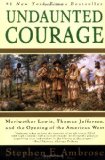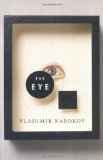Book Review: "Julius Caesar" by Shakespeare
April 17, 2008
It’s strange reading about Roman history through compound filters: dramatization, Shakespearean England, what we know of the Roman Republic, modern norms. One gets so twisted around that nary an eyebrow is raised in Act 2 when Caesar asks “What is’t o’clock?” (Brutus: “Caesar, ’tis strucken eight.
“) Such a tangle that it might not jump immediately to mind that there were probably not a whole lot of chiming clocks in the first century BC. We’ve got Centurions herein acting like they’re on Queen Elizabeth’s court. Strange.
This play is brief. Brief enough that it doesn’t feel like a story so much as a string of exchanges. Brutus (who refers to himself in the third person and thus puts me in the mind of Tarzan or other deep-voiced simpleton) seems instantly swayed to subterfuge. Caesar is full of lofty exaltations but kind of amounts to nothing when you think about it. Marc Antony does show a bit of craftiness, and Cassius is devious.
I do like the way Casca responds to Cassius’ invitation to dinner and I hope I can use it myself sometime: “Ay, if I be alive, and your mind hold, and your dinner worth the eating.”
I do feel like that sometimes.
One Comment
Recently Reviewed
Get the Books
Read my Reviews
Related Posts
- Time-waster: Shakespeare
August 9, 2007 - Books: "King Lear" by Shakespeare
May 24, 2007 - Book Review: Henry IV, Part I by William Shakespeare
January 23, 2010 - Book Review: "The Aeneid" by Virgil (Robert Fagles, trans.)
September 23, 2008 - Book Review: "The Three Theban Plays" by Sophocles (trans. Robert Fagles)
May 29, 2008

 )
)


I read this play so long ago that I have no real memory of it besides what my high school brain decided to store and the truly famous bits. But I still giggle at the following exchange:
CINNA: I am Cinna the poet, I am Cinna the poet!
FOURTH CITIZEN: Tear him for his bad verses, tear him for his bad verses!